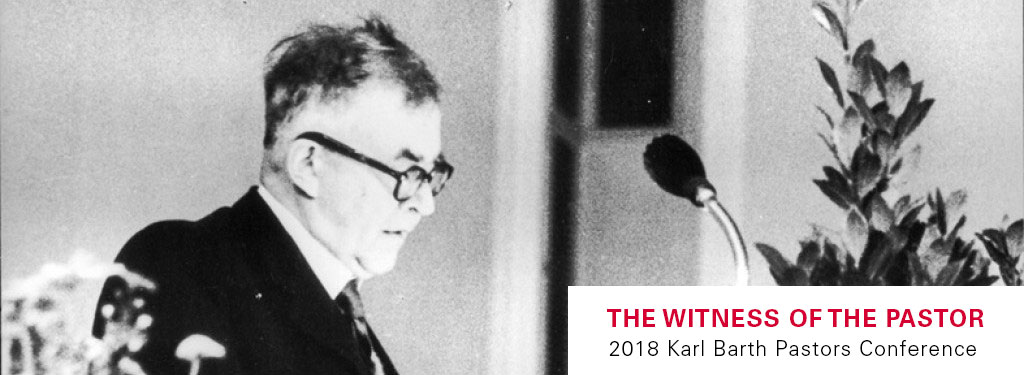
Date
Time
2018 Barth Pastors Conference

The Karl Barth Pastors Conference constructively utilizes Karl Barth’s life and theology as a rich resource for pastors in the twenty-first century. The conference seeks to be a hybrid space that unites deep theological reflection with the needs and concerns of pastors serving in the church today. Each lecture and workshop throughout the course of the conference explores various ways in which Barth’s service as a pastor and his lifelong theological contributions might offer creative and stimulating resources for the pastor’s work including preaching, pastoral care, social/political concerns and engagement, and witnessing to the Gospel in the world.
The 2018 Karl Barth’s Pastor’s Conference will be held on June 21-23 at Princeton Theological Seminary. The theme of this year’s conference will be “The Witness of the Pastor.” The conference will consist of three evening plenary lectures, an extended lecture series, various workshops, and a special message from Eugene Peterson to be delivered by his son Eric Peterson on Friday evening.
We hope you will join us!
Registration
Cost
Regular Attendee: $295 (Includes breakfast on Thursday, Friday, and Saturday, lunch on Thursday and Friday, the banquet dinner meal and reception on Thursday evening, and all refreshments)
Students: $80 (Does not include meals, but includes the reception on Thursday evening and all refreshments)
Registration is now closed. You can register in person at the conference registration table.
Leadership
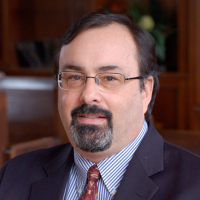 Peter Anders
Peter Anders
Peter Anders is an independent scholar with graduate degrees in theology and religious studies from Wheaton College (MA), Yale Divinity School (MAR), and the University of Oxford (DPhil). He was also Visiting Research Fellow in Modern Intellectual History at Harvard University. Peter has taught theology and religious studies at a number of Christian colleges and seminaries across the country. Among Peter’s publications is “Nonviolence and the Immanent Logic of Christian Trinitarian Monotheism,” in Violence in Modern Society: Monotheism Guilty?, edited by Alejandra Vanney (Georg Olms, 2013). Peter’s current book project is an intellectual history of Barth’s recovery of Luther’s theologia crucis as a modern theological corrective.
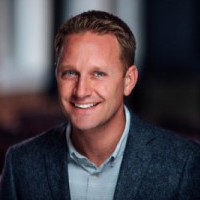 Christian Andrews
Christian Andrews
In 2002, Christian left Princeton Theological Seminary’s doctoral program in homiletics to work with a group of Christians who organized to do evangelistic outreach with teens in Red Bank, New Jersey. His reading of Barth shifted from academic to practical purposes as the community began gathering for weekly worship in 2004. For thirteen years, Barth’s theological vision has shaped his preaching, his approach to pastoral leadership, and his self-understanding. He has taught Missional Theology and Practice and Church Planting and Revitalization with Darrell Guder at Princeton Theological Seminary. He currently serves as Lead Pastor for Renaissance Church in Summit, New Jersey.
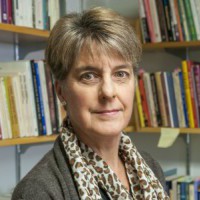 Sally Brown
Sally Brown
Sally A. Brown is Princeton Seminary’s Elizabeth M. Engle Associate Professor of Preaching and Worship. She has an MDiv from Gordon-Conwell Theological Seminary and a PhD from Princeton Theological Seminary. An ordained Presbyterian minister with more than 20 years of parish and nonparish pastoral experience prior to beginning her academic career, she continues to teach and preach in local congregations. Her academic interests include the theology and rhetoric of the cross in contemporary preaching, with attention to issues raised by feminist theology and postmodern theories of discourse; exploring the history, theology, and rhetoric of women’s preaching in a range of cultural contexts; identifying trajectories of continuity and change in worship today, with attention to the what and why of Christian worship, theologically, as well as the difference context makes in worship practices; and hermeneutical theory and constructive practical theology. She teaches preaching and worship as well as a PhD seminar in theories of interpretation and constructive practical theology. She is the author of Cross Talk: Preaching Redemption Here and Now (Westminster John Knox Press, 2008) and editor of Lament: Reclaiming Practices in Pulpit, Pew, and Public Square (Westminster John Knox Press, 2005).
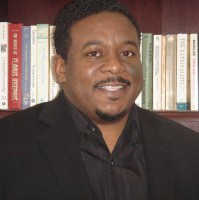 Raymond Carr
Raymond Carr
Dr. Raymond Carr is an Assistant Professor of theology and ethics in the Religion and Philosophy Division at Pepperdine University. His research interests are theologically ecumenical, historically sensitive, and radically inclusive. Dr. Carr received his Ph.D. from Graduate Theological Union in Systematic and Philosophical Theology. He teaches courses on the theology of Martin Luther, Theology Born of Struggle, and the Old Testament in Context. He is currently working on a theological aesthetics, Theology in the Mode of Monk: Barth and Cone on Revelation and Freedom, which combines together his research interests and uses the music of Thelonious Monk as a form of parabolic suggestiveness. Previous publications include “Merton and Barth in Dialogue on Faith and Understanding: A Hermeneutics of Freedom and Ambiguity,” The Merton Annual: Studies in Culture, Spirituality, and Social Concerns 26 (2013), 181-194. Living in the City of Angels renews his appreciation for various cultures and challenges him to honor the word of God as it speaks to all nations: “All the ends of the earth will remember and turn to the Lord, and all the families of the nations will worship before you. Selah” (Psalms 9:20).
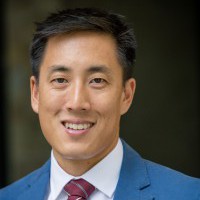 Gerald C. Liu
Gerald C. Liu
Gerald C. Liu is Assistant Professor of Worship and Preaching at Princeton Theological School. An ordained United Methodist Elder of the Mississippi Annual Conference, he also serves as a Minister in Residence at the Church of the Village, a United Methodist Congregation in Manhattan. He is the son of culturally Buddhist immigrants from Taiwan, and has recently published Music and the Generosity of God (Palgrave MacMillan, 2017), a theory about sounds as gifts from God.
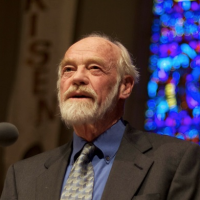 Eugene Peterson
Eugene Peterson
Eugene H. Peterson is a pastor, scholar, author, and poet. He has written over thirty books, including Gold Medallion Book Award winner The Message: The Bible in Contemporary Language (Navpress Publishing Group, 2002), a contemporary paraphrase of the Bible. Peterson earned his B.A. in philosophy from Seattle Pacific University, his S.T.B. from New York Theological Seminary, and his M.A. in Semitic languages from Johns Hopkins University. In 1962, Peterson was a founding pastor of Christ Our King Presbyterian Church in Bel Air, Maryland, where he served for 29 years before retiring in 1991. He was Professor Emeritus of Spiritual Theology at Regent College in Vancouver, British Columbia until retiring in 2006. He now lives in Montana.
Please note: the special message from Eugene Peterson scheduled for Friday evening of the conference will be delivered by his son, Eric Peterson.
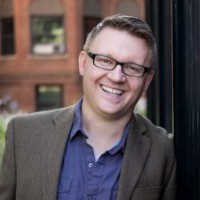 Andrew Root
Andrew Root
Andrew Root, PhD (Princeton Theological Seminary) is the Carrie Olson Baalson Associate Professor of Youth and Family Ministry at Luther Seminary. He is most recently the author of Faith Formation in a Secular Age (Baker, 2017) and The Grace of Dogs: A Boy a Black Lab and Father’s Search for the Canine Soul (Convergent, 2017). He has also authored Christopraxis: A Practical Theology of the Cross (Fortress, 2014), Bonhoeffer as Youth Worker (Baker, 2014) and The Relational Pastor (IVP, 2012).
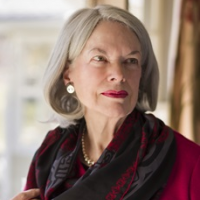 Fleming Rutledge
Fleming Rutledge
The Rev. Fleming Rutledge is a preacher and teacher known throughout the mainline Protestant denominations of the US, Canada, and parts of the UK. She is the author of seven books, the most recent being The Crucifixion: Understanding the Death of Jesus Christ. She has received a grant from the Louisville Institute to complete a two-volume work about the meaning of the Crucifixion. She contributes regularly to her website. One of the first women to be ordained to the priesthood of the Episcopal Church, she served in parish ministry for 22 years. Fourteen of those years were spent at Grace Church on Lower Broadway at Tenth Street, New York City. Her most recent position was as guest lecturer in preaching at the University of Toronto School of Theology. A native of Franklin, Virginia, Mrs. Rutledge and her husband Reginald E. (Dick) Rutledge recently celebrated their fiftieth wedding anniversary. They have two daughters and two grandchildren.
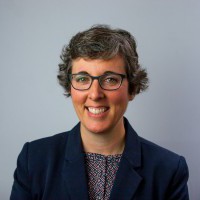 Shannon Smythe
Shannon Smythe
Shannon Smythe is assistant Professor of theological studies at Seattle Pacific University. Dr. Smythe’s research interests include the doctrines of atonement, election, and justification, dialectical theology, apocalyptic theology, theological interpretation of Scripture, and feminist and womanist theology. Her current questions center on the intersections between apocalyptic theology and dialectical theology, and dialectical theology, feminist theology and gender studies. She is the author of Forensic Apocalyptic Theology: Karl Barth and the Doctrine of Justification and Women in Ministry: Questions and Answers in the Exploration of a Calling and has several chapters on Karl Barth’s theology in edited volumes. Dr. Smythe is an ordained teaching elder in the PC(USA) and regularly preaches and teaches in local congregations, including her home congregation, Lake Burien Presbyterian Church.
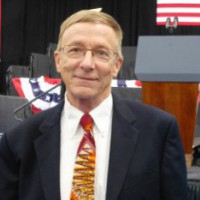 Nibs Stroupe
Nibs Stroupe
Nibs is a native of Helena, Arkansas and has just retired as senior pastor at Oakhurst Presbyterian Church in January, where he pastored since 1983. Oakhurst Presbyterian is a nationally recognized leader in multicultural ministries, having been featured in Time Magazine, NBC News, NPR, CNN News, CBS Radio, Christian Science Monitor, and Presbyterians Today. In 2003, the church was named as one of 300 Excellent Protestant congregations in the United States by a Lilly-based study.
Nibs is married to the Rev. Caroline Leach, and they have two children and two grandchildren. He and Caroline were the first clergy couple to serve in a local church as co-pastors in the former PC(USA), and they were pastors at Oakhurst Presbyterian until her retirement in 2012. He is the author of four books, including a book of sermons published in September entitled Deeper Waters: Sermons for a New Vision. He has written numerous articles for Journal for Preachers, and he is a regular contributor to the Feasting on the Word series. Nibs also writes a monthly column for Hospitality Magazine and has written other articles for numerous publications and books. In 2007, he was inducted into the MLK Board of Preachers at Morehouse College. He has been adjunct faculty at both Columbia Seminary and Candler School of Theology.
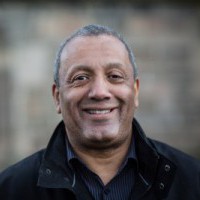 John Swinton
John Swinton
John Swinton is Professor in Practical Theology and Pastoral Care and Chair in Divinity and Religious Studies at the University of Aberdeen. He is an ordained minister of the Church of Scotland working for more than a decade as a registered mental health nurse. He also worked for a number of years as a hospital and community chaplain. John serves as an honorary professor and researcher at Aberdeen’s Centre for Advanced Studies in Nursing. In 2004, he founded the University of Aberdeen’s Centre for Spirituality, Health, and Disability and in 2014, he founded the University’s Centre for Ministry Studies. Professor Swinton has published widely within the area of dementia, practical theology, disability theology, qualitative research, and pastoral care. He is the author of a number of monographs including Becoming Friends of Time: Disability, Timefullness, and Gentle Discipleship (Baylor Academic Press, 2016), Dementia: Living in the Memories of God (Eerdmans, 2014), Raging With Compassion: Theological Responses to the Problem of Evil (Eerdmans 2006), and Spirituality in Mental Health Care: Rediscovering a ‘Forgotten’ Dimension (Jessica Kingsley Publishers, 2001). In 2016, his book Dementia won the Archbishop of Canterbury’s Ramsey Prize for excellence in theological writing. The Archbishop of Canterbury, Right Rev. Justin Welby, described the book thus: “John has written a book which is deeply challenging and brings to bear a coherent theological approach, with clinical background and understanding, to an issue that has touched many of us, and is one of the great issues of our society. He has done the church and our country a huge service.” In 2017, his most recent book Becoming Friends of Time won the award of merit for theology and ethics in the Christianity Today book awards for 2017. The book was named as “one of the books most likely to shape evangelical life, thought, and culture.” John is married with five children and lives in the city of Aberdeen.
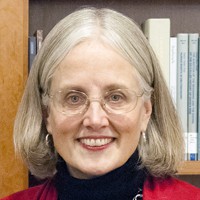 Deborah van Deusen Hunsinger
Deborah van Deusen Hunsinger
The Rev. Deborah van Deusen Hunsinger, Charlotte W. Newcombe Professor of Pastoral Theology at Princeton Theological Seminary, earned her M.Div. from Yale University Divinity School, and her M.Phil. and Ph.D. from Union Theological Seminary in New York City.
An ordained Presbyterian minister, she is interested in educating clergy and laypeople to offer theologically sound, psychologically informed, and contextually relevant pastoral care in the church. She has extensive experience as a certified pastoral counselor, nonviolent communication educator, grief counselor and facilitator of restorative circles. She is author (or co-author or co-editor) of six books and many articles, including the 2015 Book of the Year, Bearing the Unbearable: Trauma, Gospel and Pastoral Care (Eerdmans), awarded by the Academy of Parish Clergy.
Schedule
June 21-23, 2018 (Thursday to Saturday)
Wednesday, June 20
4:00 – 6:30 p.m. Registration (Erdman Campus Center)
Thursday, June 21
7:30 – 8:00 a.m. Registration (Erdman Campus Center)
8:00 – 9:00 a.m. Breakfast (Mackay Campus Center Dining Hall)
9:00 – 9:45 a.m. Worship (Miller Chapel) – Sally Brown, Preaching
9:45 – 10:00 a.m. Coffee Outside Stuart Hall
10:00 – 11:45 a.m. Extended Teaching – Christian Andrews (Stuart Hall 6)
12:00 – 1:00 p.m. Lunch (Mackay Campus Center Dining Hall)
1:00 – 2:15 p.m. Workshop A
2:15 – 2:45 p.m. Coffee and Refreshments (Stuart Hall Basement)
3:00 – 4:15 p.m. Workshop B
4:15 – 6:00 p.m. Break/Free Time
6:00 – 7:30 p.m. Banquet Dinner (Mackay Campus Center Dining Hall)
7:30 – 8:30 p.m. Plenary Session: Fleming Rutledge (Stuart Hall 6)
Friday, June 22
8:00 – 9:00 a.m. Breakfast (Mackay Campus Center Dining Hall)
9:00 – 9:45 a.m. Worship: preaching (Miller Chapel) – Gerald Liu, preaching
9:45 – 10:00 a.m. Coffee Outside Stuart Hall
10:00 – 11:45 a.m. Extended Teaching – Christian Andrews (Stuart Hall 6)
12:00 – 1:00 p.m. Lunch (Mackay Campus Center Dining Hall)
1:00 – 2:15 p.m. Workshop C
2:15 – 2:45 p.m. Break – Coffee and Refreshments (Stuart Hall Basement)
3:00 – 4:15 p.m. Workshop D
4:15 – 6:30 p.m. Break – Free Dinner in Princeton
6:30 – 7:30 p.m. Plenary Session: Andy Root (Stuart Hall 6)
8:00 – 9:30 p.m. Reception with Special Message from Eugene Peterson – to be delivered by his son, Eric Peterson (Main Lounge – Mackay Campus Center)
Saturday, June 23
Please make sure to check out from the Erdman Center before you leave for breakfast.
8:00 – 9:00 a.m. Breakfast (Mackay Campus Center Dining Hall)
9:00 – 9:30 a.m. Worship (Miller Chapel)
9:45 – 10:45 a.m. Extended Teaching – Christian Andrews (Stuart Hall 6)
10:45 – 11:00 a.m. Break – Coffee (Basement of Stuart)
11:00 – 12:00 p.m. Plenary Session: Nibs Stroupe (Stuart Hall 6)
Workshops
Leader Name: Peter Anders (University of Oxford)
Title: “The Cruciform Witness of the Pastor”
Description: This workshop will explore some of the practical implications of Karl Barth’s theologia crucis for the witness of the pastor. We will begin by setting out the basic contours of Barth’s theologia crucis developed in his earlier theology, first as a corrective theology in response to the collapse of modern theology with the First World War, and then as a recovery of Martin Luther’s theologia crucis in his engagement at Göttingen with the Luther Renaissance. We will discuss the practical implications of Barth’s theologia crucis as it informs his theological method, homiletics, and ethics—the pastor’s cruciform witness to faith, hope, and love.
Leader Name: Raymond Carr (Pepperdine University)
Title: “Epistrophy: From Romans 13 to the 13th”
Description: In this workshop, I will utilize the theology of Karl Barth in conversation with James H. Cone to address the mythology of black criminality—specifically the prison industrial complex. Utilizing original research from the archives of William Stringfellow (who escorted Karl Barth on an American prison tour) in conversation Ava DuVernay’s galvanizing documentary 13th, I articulate a rapprochement between Barth and Cone that illuminates how Barth’s and Cone’s theology provide a framework for radical engagement in the socio-political arena. The term Epistrophy, coined by the jazz musician Thelonious Monk, plays on the term epistrophe, which among theologians and New Testament writers signifies a turn or break from a previous mode of being. Epistrophy thus signifies the way a theology of redemption can turn or make its break with the “powers that be” in light of Barth and Cone’s theological contributions.
Leader Name: Angela Hancock (Pittsburgh Theological Seminary)
Title: “Sermon Purgatory with Karl Barth”
Description: Most preachers have some acquaintance with the dark night of the soul that can occur in the midst of writing a sermon—right at the intersection of exegesis and life. This workshop considers the potential contribution of Barth’s approach to sermon preparation for the practice of preaching today, with attention to biblical interpretation, creativity, and social/political witness.
Leader Name: Deborah Hunsinger (Princeton Theological Seminary)
Title: “Trauma, Mourning and Forgiveness: Karl Barth and Pastoral Care”
Description: Karl Barth (and his colleague in pastoral theology, Eduard Thurneysen) were both sharply critical of American approaches to pastoral care which were little more than “psychological counsel in religious garb.” This workshop will develop an approach to pastoral care in which psychological concepts will function as a truly auxiliary science but where the Word of God will take precedence.
The workshop will engage a case study in which a man, filled with regret for sins he committed, seeks his pastor with specific questions about God’s forgiveness. Together, the participants will engage the case, seeking to offer a more substantive theological conversation than what the pastor offers his parishioner.
Leader Name: Shannon Smythe (Seattle Pacific University)
Title: “Straight to the Heart: Delighting with Barth in Romans”
Description: In a 1924 letter to his good friend, Eduard Thurneysen, Barth expressed his utter delight in the letters of the apostle Paul. In comparison, all dogmatics and ethics were “slime” in Barth’s eyes. This workshop will endeavor to experience some of Barth’s delight with Romans by dipping into his engagement with Romans 7 in two different theological contexts: the 2nd edition of his Romans commentary and the fourth volume of the Church Dogmatics. Both works will give us insight into Barth’s commitment, as a dialectical theologian, to the good news of God’s justification of the ungodly. Barth hears Paul’s proclamation of our liberation by God from sin and death and for new freedom and life in Christ by the Spirit. We will wrestle together with the existential implications of understanding justification, in contrast to all religious striving, as a constant, dynamic transition in us patterned after the history of Christ’s death and resurrection.
Leader Name: John Swinton (University of Aberdeen)
Title: “Being in Christ: Barth, Human Identity, and the Experience of Brain Damage.”
Description: The workshop will focus on the ways in which Barth’s thinking around the idea of being in Christ impacts upon the issue of identity in relation to three groups of people who have experienced significant brain damage: people with profound intellectual disability, people with advanced dementia, and people living with traumatic brain injury. Focusing on Barth’s thinking around soteriological objectivism – the suggestion that there is no other truth about us other than the truth of who we are before God in Jesus – we will explore what it is that makes “you” “you” in the midst of significant brain changes or the lack of neurological development. The workshop will explore issues of identity, personhood, personality change, the nature of discipleship, and salvation.
Lodging
Lodging at Princeton Seminary’s Erdman Center is full for this conference.
We have reserved rooms on-campus at the seminary’s dormitory rooms, and off-campus at the nearby DoubleTree Hotel:
Dormitory Rooms:
Located on the campus of Princeton Theological Seminary in Alexander Hall and in easy walking distance to downtown Princeton. Guests check in and receive their room keys at the front desk of the seminary’s Erdman Center at 20 Library Place, Princeton NJ. Note that rooms are dormitory style with an XL twin bed, linens, a night stand, dresser, desk with chair, and a book shelf. All rooms have WiFi. Recently renovated bathrooms on each floor are shared by all rooms on a hallway. Please note before booking that the dormitories do not have an elevator or wheelchair ramps.
Each dormitory room is $47 per night.
Please call (609) 497-7990 to make a reservation and indicate that you are attending the Barth Pastors Conference at Princeton Theological Seminary.
DoubleTree Hotel:
We have reserved a room block at the nearby DoubleTree Hotel in Princeton at 4355 US-1, Princeton, NJ 08540. Rooms start at $139 per evening. To book a reservation, please click here.
Maps & Directions
By Air
From Newark Liberty International Airport
The Olympic Airporter shuttle service takes you to the Nassau Inn in Princeton; call for schedule and reservations: 800.822.9797 (within the United States) or 732.938.6666 (outside the United States), or visit www.olympicairporter.com
The AirTrain takes you from all airport terminals to the Newark Liberty International Airport Train Station. Take New Jersey Transit southbound (Northeast Corridor Line) trains to Princeton Junction. From Princeton Junction take the train to Princeton Station.
From Philadelphia International Airport
Take the R1 High Speed Rail Line (entrance on pedestrian bridges and commercial roadway), limousine service (The Olympic Airporter; call for reservations: 800.822.9797 within the United States or 732.938.6666 outside the United States, or visit www.olympicairporter.com), or local taxi service to 30th Street Station in Philadelphia, where you can purchase a SEPTA/New Jersey Transit ticket to take a SEPTA train to Trenton and a New Jersey Transit train to Princeton Junction. From Princeton Junction take the train to Princeton Station.
By Bus
From Port Authority Bus Terminal in New York City (41st Street and 8th Avenue)
Purchase a Suburban Transit bus ticket to Princeton at windows 16 through 19 on the first floor. Board the bus on the third floor (fourth level) at gates 420 through 422. The bus leaves every half hour between 6:00 a.m. and 11:00 p.m. on weekdays and between 9:00 a.m. and 11:00 p.m. on weekends, and every half hour on the hour until 1:00 a.m. The trip is one and one-half hours. Ask the driver to let you off at the end of Nassau Street where it meets Mercer Street and Route 206 in Princeton, and walk to the Seminary.
By Train
From New York City (and north) and Philadelphia (and south)
New Jersey Transit services Princeton from the north (New York City, Newark), with connecting service from the south (Trenton, Philadelphia, Baltimore, Washington DC). Amtrak trains stop in Trenton, and some at Princeton Junction.
By Car
From the North/New York City
Take the New Jersey Turnpike South to Exit 9 (New Brunswick). After the tollbooths, bear right onto the ramp for Route 18 North. Shortly after getting onto Route 18 North the road will fork; stay to the left of the fork, in the right lane. Bear right onto this exit for Route 1 South/Trenton. Follow Route 1 South to Alexander Road (Princeton). Turn right onto Alexander Road and continue to the entrance of Princeton Seminary, which is the first left turn after College Road (Alexander Road will be Alexander Street at this point).
From the West
Take I-78 East into New Jersey. Exit onto I-287 South toward Somerville. Follow signs for Routes 202/206 South. Travel south on 202 for a short distance and then follow signs for Route 206 South. You will go around a traffic circle. Continue south on Route 206 for about eighteen miles to Nassau Street (Route 27) in the center of Princeton. Turn left onto Nassau Street and the first right onto Mercer Street and continue to the main entrance of Princeton Seminary, which will be on your left.
From the South
From southern New Jersey take I-295 North (becomes I-95 South) to the “Princeton Pike North” exit and continue on Princeton Pike for approximately five miles. Immediately after passing Library Place (on the left), the main entrance to the campus will be on your right.
From the East
Take I-95 West toward Trenton to the exit for I-295 North (becomes I-95 South) to the “Princeton Pike North” exit and continue on Princeton Pike for approximately five miles. Immediately after passing Library Place (on the left), the main entrance to the campus will be on your right.
From Philadelphia
Take I-95 North into New Jersey and exit at “Princeton Pike North” and continue on Princeton Pike for approximately five miles. Immediately after passing Library Place (on the left), the main entrance to the campus will be on your right.
Contact
If you have any questions or concerns, email us at barth.center@ptsem.edu or call us at 609-524-1981.
Please allow at least three business days for an email response.

